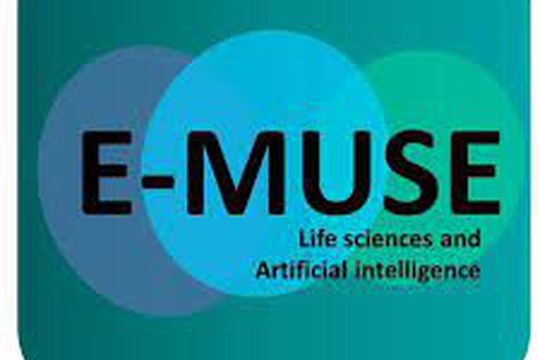Application Deadline : 30/06/2021
Envisaged Job Starting Date: 01/11/2021
Duration : 3 years
Contract type: full-time employment (based on COVID-19 evolution and restrictions, possibility to start remotely, once situation allows the presence is required)
Offer Description
E-MUSE Project (Complex microbial Ecosystems MUltiScale modElling: mechanistic and data driven approaches integration)
The E-MUSE training programme aims at developing young researchers’ skills at the interface between artificial intelligence and life sciences. The challenge is to acquire a shared language bridging life science questions and original modelling approaches. The research programme of the E-MUSE network is to develop innovative modelling methodologies to understand a complex microbial ecosystem and identify levers to control and/or predict its evolution. To deal with biological complexity, biologists, mathematicians, and computer scientists have to work together to develop innovative methodologies. An important complexity of this domain originates from scales and dynamics issues, ranging from local kinetics at the level of the cell to emerging macroscopic properties of the biological system. The development of high throughput techniques provides more and more large datasets, but knowledge is not easily inferred from this huge amount of data and multiscale dynamics are still incompletely characterised and predicted. E-MUSE’s transdisciplinary network gathers academic and industrial partners to equip Early Stage Researchers (ESRs) with scientific, research and transferable skills to become leaders in academic research or industry. They will be at the cutting edge of the modelling methodologies that we apply to model structural and dynamic features of microbial communities, to identify key processes and biomarkers for specific applications.
Objectives (for general offer)
To learn, implement and apply network-based algorithms to available data, embedding multi-omics data into a network framework. The ESR will deal with omics experimental data and combine them with relevant information about bacterial and metagenomics networks (e.g. protein interaction, biochemical pathways, metabolic networks). Starting from these reconstructed networks, several methods will be applied to identify key players (nodes, pathways, communities) related to the experimental conditions studied.
Job description
Objectives (for website, more in detail)
The objective of the research project is the integration and embedding of multi-omics data into a Systems network framework, and to develop new advanced statistical and mathematical methods (based on Machine Learning and Network Theory) for integrated analysis of multiple omics datasets to characterize complex microbial ecosystems. The ESR will deal with omics experimental data and combine them with relevant information about bacterial and metagenomics networks (e.g. protein interaction, biochemical pathways, metabolic networks). Starting from these reconstructed networks, several methods will be applied to identify key players (nodes, pathways, communities) related to the experimental conditions studied.
Expected results:
It is expected to clarify the relationships between different omics measurements, and to identify the key players with a relevant role in the studied processes (i.e. a signature or a subnetwork community), or to rank the different network elements based on their structural and functional role (prioritization). These network-based techniques will be combined with the basics of Machine Learning for the pursued research aims: multivariate linear and nonlinear regression, feature extraction, clustering and classification.
Planned secondment(s):
In total, 2 months will be spent at Stichting VU in Netherlands (systems modelling), 2 months at Agencia Estatal Consejo Superior Deinvestigaciones Cientificas in Spain (systems modelling) and 2 months at the Szegedi Tudomanyegyetemusz in Hungary (data analysis through artificial intelligence models).
Enrolment in Doctoral degree: Alma Mater Studorium – Universita di Bologna (UNIBO) (https://www.unibo.it/en)
Requirements
Required Education Level:
The candidate is required to have a master degree in Physics, Computer science, Mathematics, Statistics or related fields giving access to PhD school and NOT to have any kind of PhD degree. Previous research experience (which must be no longer than 4 years) although appreciated, is not mandatory.
Skills/Qualifications:
- networking and good communications skills (writing and presentation skills)
- willingness to travel abroad for the purpose of research, training and dissemination
- good skills in programming of high-level languages like Python, R, Matlab (not mandatory but highly recommended)
Specific Requirements: For the eligibility please check: Eligibility Criteria
Required Languages:
English: B2, good oral and written communication skills in English are compulsory.
To apply please visit our website: https://www.itn-emuse.com/esr7
